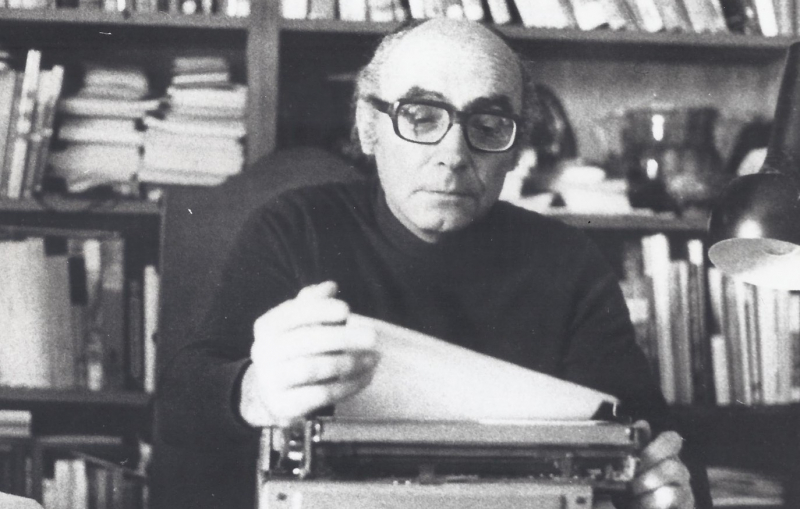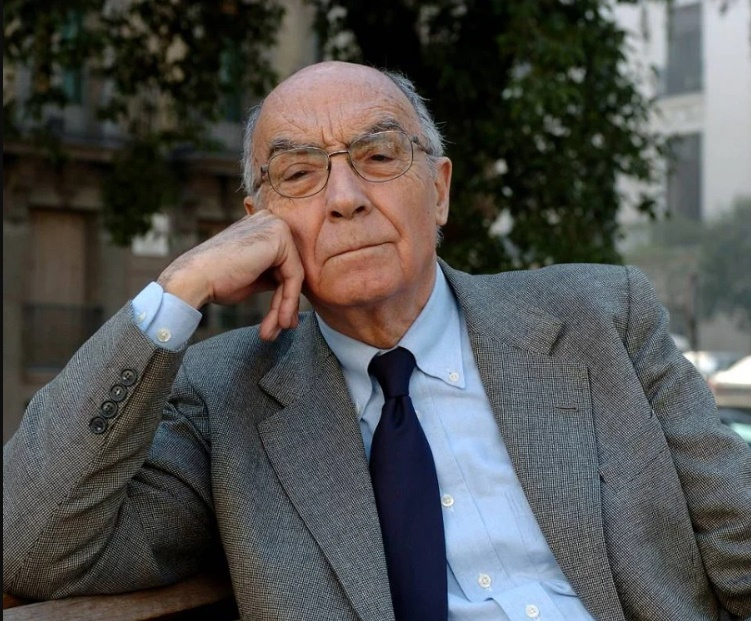José de Sousa Saramago
José de Sousa Saramago (November 16, 1922 – June 18, 2010) was a Portuguese writer who won the Nobel Prize in Literature in 1998. His compositions, some of which can be interpreted as allegories, frequently give subversive viewpoints on historical events, with an emphasis on the theopoetic human aspect. In 2010, Harold Bloom called Saramago "a permanent part of the Western canon," while James Wood praised "the distinctive tone to his fiction because he narrates his novels as if he were someone both wise and ignorant."
Saramago's works have sold over two million copies in Portugal alone, and his work has been translated into 25 languages. Saramago, a supporter of libertarian communism, slammed institutions including the Catholic Church, the European Union, and the International Monetary Fund. He was an atheist who championed love as a tool for bettering the human condition. In 1992, the Portuguese government, led by Prime Minister Aníbal Cavaco Silva, removed one of his books, The Gospel According to Jesus Christ, off the Aristeion Prize shortlist, stating it was religiously insulting. Disheartened by the political censorship of his work, Saramago moved into exile to the Spanish island of Lanzarote, where he died in 2010 alongside his Spanish wife Pilar del Ro. Saramago was a founding member of the National Front for the Defense of Culture in Lisbon in 1992, as well as a co-founder of the European Writers' Parliament alongside Orhan Pamuk (EWP).











